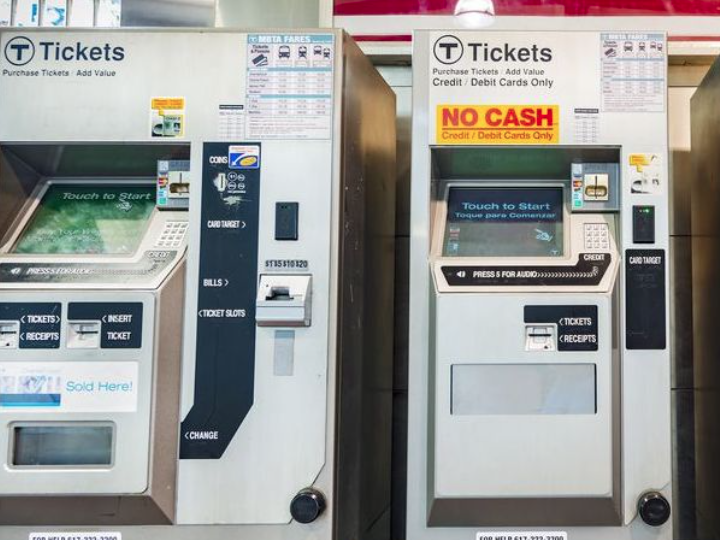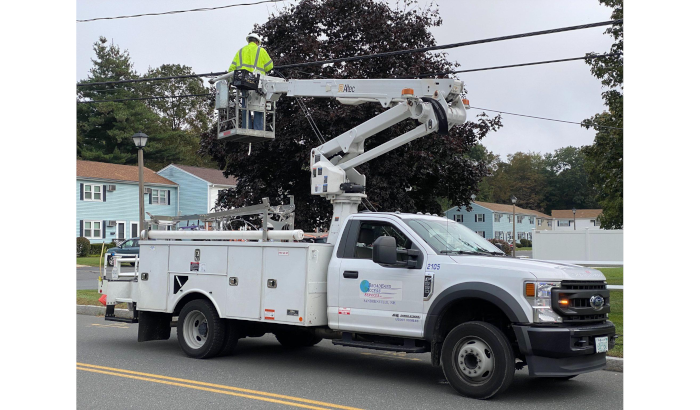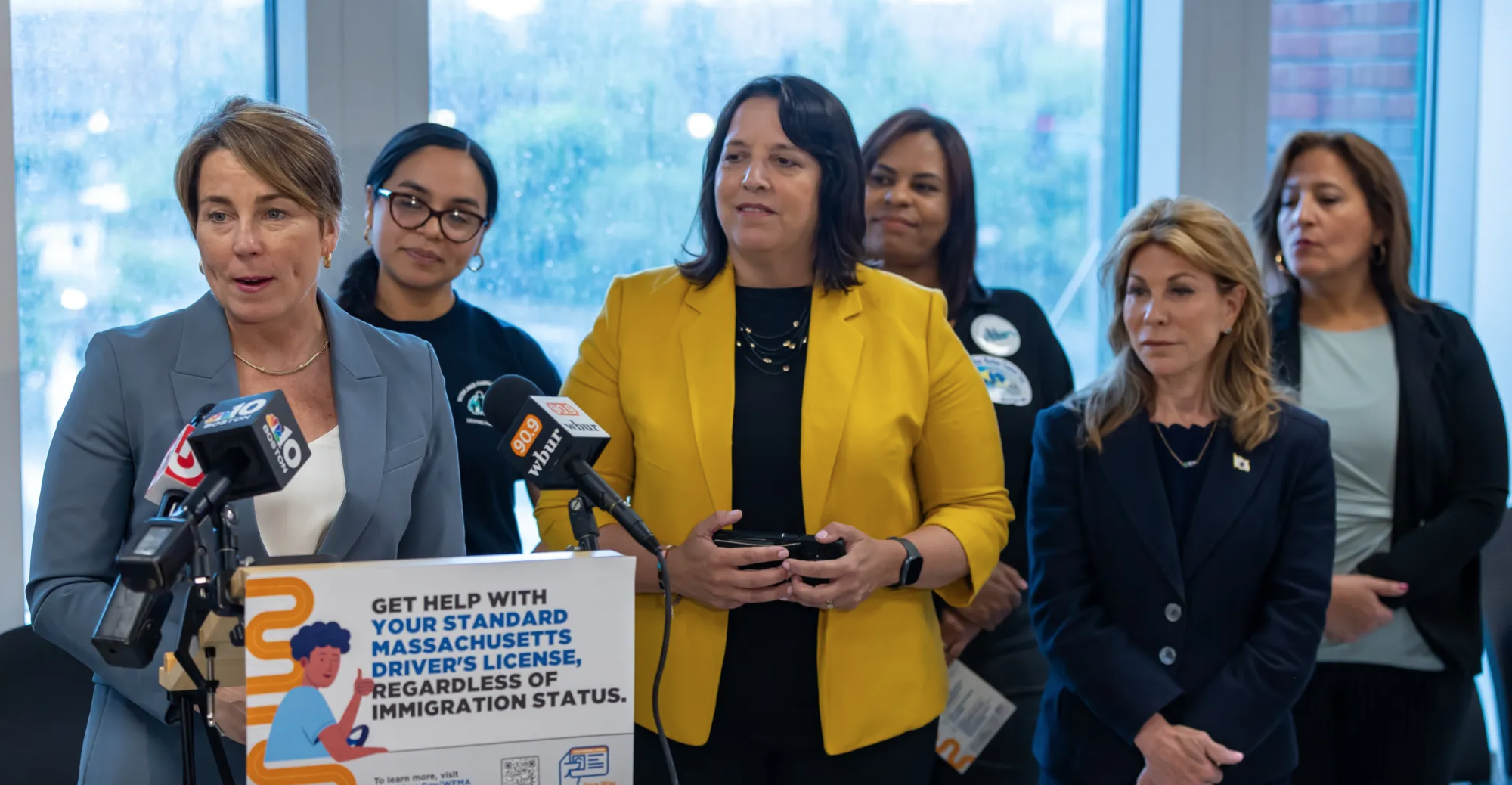After years of delays, the MBTA is finally about to roll out a new fare-collection apparatus. Will it only lead to more problems for the embattled agency?
“The common good is compromised with this level of privatization. … we believe at the end of the day the private sector will make profits in ways that may harm our population, our communities.”
The MBTA is preparing to launch its new long-delayed, billion-dollar fare-collection system—and with it, a new crew of “fare engagement officials” who will check whether subway and bus riders have paid their fares and cite those who have not.
In the process, the T will reportedly train those ticket-checkers to “minimize the effects of any unintended biases during interactions with passengers,” with a focus on DEI and community trauma, according to bid documents. Still, transit advocates are skeptical that the new process—which will be installed and operated, on a technical level, by a private equity group—will still lead to harassment for minority groups.
“This could potentially impact protected classes who have historically had issues with enforcement, particularly on the MBTA,” said Dwaign Tyndal, executive director of Alternatives for Community and Environment (ACE) in Roxbury. “What level of transparency and oversight will the community have in this process? Is [this training] supposed to provide some level of cultural and ethnic sensitivity? We don’t really see that, we see that corners will be cut. If not on the front end, then 18 months from now. What type of remedies will we have if and when this gets cut?”
Kade Crockford, Technology for Liberty program director at ACLU of Massachusetts, said the ACLU has worked with the T to make sure fare collection will be equitable and praised the agency’s interest in equity—but also hopes that equity plays out in practice when the system goes live.
“The agency should be commended for its focus on equity and justice,” Crockford said. “Of course, intention and impact are different things, so the ACLU will be watching to ensure all people are treated with dignity and respect while riding the T.”
Advocates have also questioned whether this kind of enforcement will even work in the first place on the MBTA’s bus network. For starters, they have asked if making bus travel free, as is already the case on several Boston bus lines and in some regional Massachusetts transit systems, is a better solution to avoid confrontations in the first place.
“There are still a lot of open questions around fare validation,” said Stacey Thompson, executive director of LiveableStreets Alliance, which advocates for “just and inclusive policies, processes, and public spaces that ensure all people have safe and accessible mobility and housing options.” Thompson continued, “There’s a colossal difference between well-trained ambassadors at rail or commuter rail stops where there is likely to be a gate as opposed to potentially having evaluation on buses.
“I don’t think there’s a practical way to put a T ambassador on the bus for fare validation.”
Delayed deployment
For the past two years, three Boston bus lines have operated fare-free under a pilot program that Mayor Michelle Wu is looking to extend, according to the Commonwealth Beacon. The MBTA is also looking at creating a reduced fare for low-income T riders, which Gov. Maura Healey called for earlier this month. Healey has also promised to double state funding for the T.
But the T is facing increasing deficits, the Boston Globe reported over the weekend, potentially looking at an $859 million budget gap by 2028. Its new fare collection system is supposed to bring in billions of dollars over the next decade—but the program itself is set to cost nearly a billion dollars, and is years overdue.

The MBTA has been working on the new fare-collection system, known as AFC 2.0, for more than seven years. It is intended to allow riders to pay for fares by tapping credit cards or phones, as well as Charlie Cards, to fare readers, making it easier to transfer from subways and buses to Commuter Rail trains and to pay without having to go to a machine and re-up money on a Charlie Card. The new system will also put fare readers in the back of buses and trolley cars in order to speed up boarding and ultimately make those routes run faster, the T says.
A conglomeration of Cubic Corporation and the John Laing Group won the bid for the massive project in 2017. Cubic, which operates fare collection systems for transit agencies around the world, including New York City’s MTA, was supposed to handle installation and operation with financing from John Laing. But the project, which was originally scheduled to go online by 2021, has seen significant delays, in part due to the COVID-19 pandemic but also because of technology issues and privacy concerns.
In 2020, the MBTA agreed to a nearly 30% increase in the project’s cost—jacking it up from $723 million to $935 million. Officials said the “reset” was necessary to add needed equipment and “re-calibrate privacy policy agreements.”
Privacy advocates have raised concerns about Cubic’s data collection, noting its fare collection systems are under the umbrella of a larger company that provides surveillance and intelligence software to government agencies. Meanwhile, at the time of the contract, Cubic was a publicly-traded company, but went private after the business was acquired by Veritas Capital in 2021. Cubic did not respond to a request for comment.
Tyndal of ACE said having a for-profit, private company in charge of the MBTA’s fare collection is a mistake: “This whole privatization that is cloaked into some level, can we be honest on how and why we got here? It’s not even clear why we are at this point, why we decided to privatize an aspect of the MBTA. … The common good is compromised with this level of privatization. We don’t want to be right, but we believe at the end of the day the private sector will make profits in ways that may harm our population, our communities.”
Tools for training
MBTA officials have said they intend for AFC 2.0 to bring in $8 billion in revenue over the next decade. According to bid documents, “a new Fare Engagement Department has been created to support the riding public in making the behavioral changes required to ensure the long-term sustainability of fare revenue and to support a positive customer experience related to fare payment.”
In practice, that appears to include payment inspectors. While riders will be able to board buses via any door, “at any point during their trip, the customer may be required to present their proof of payment to a fare engagement official who will check that the customer has paid the appropriate fare,” bid documents state. “Customers without proof of valid payment are issued a warning or civil citation.” Furthermore, “The MBTA is preparing extensive training to provide staff with the tools to ensure an equitable, fair, and effective proof of payment process and to minimize the effects of any unintended biases during interactions with passengers.”
Those trainings are based around five areas, according to the bid: Community Trauma; Cultural Intelligence; Diversity, Equity & Inclusion (DEI); Stress and Resilience; and Youth Engagement. Among other services, the trainers hired by the T will “raise awareness and responsivity to personal identities, positionalities, and privileges that may keep oppressive processes in place,” and “recognize systemic barriers that marginalized communities encounter in transit access, grounded in the specific context and history of the MBTA.”
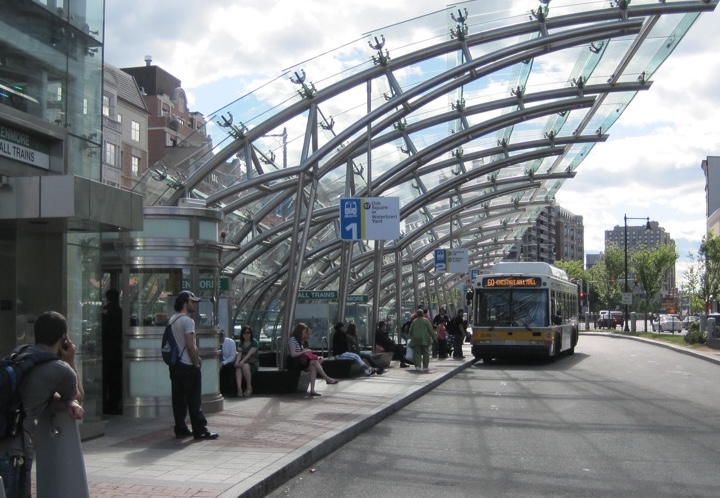
The MBTA has not said how many “fare engagement officials” it will hire or how much they will cost, how those officials will determine a rider’s ID if the rider does not provide it, and if the agency will provide citation breakdowns by race/ethnicity, or area/bus line/subway line issued. In a statement responding to numerous questions about AFC 2.0, an MBTA spokesperson said, “The MBTA is revamping its fare system to streamline the riding experience.”
The agency spokesperson continued, “Your question suggests AFC 2.0 is about increasing fare collection. It’s more so about changing the way people pay … The goal of this RFP is to hire a team to educate riders about the MBTA’s fare system, support them as they use the system, and ensure compliance. The MBTA is cognizant of concerns regarding inequities in fare enforcement and is committed to ensuring fairness across the system. Staff will receive training in topics including youth engagement, community intelligence, customer service, de-escalation, accessibility, and more, to equip them with the tools they need to be successful. Staff training, policies and procedures are being designed with a focus on reducing the impact of unconscious bias and to minimize the potential for conflicts. For example, staff will be required to systematically attempt to check all riders’ fare payment onboard vehicles to minimize discrimination and bias.”
The MBTA has budgeted between $126,000 and $210,000 for the trainings, which will begin in June. Thompson of LiveableStreets said she is glad the T will hold these trainings, which she noted were “a long time coming,” and added that the T needs to continue such trainings as long as it collects fares.
Tyndal was more skeptical. The ACE executive director said, “If they were serious about that, they would have had it in place before. It’s very consultant-driven, decent on paper but impossible to execute in real life. The remedies we have in place will not be enough to deal with worst-case scenarios.”
Tyndal added that he is especially concerned about fare-enforcement officials clashing with young people, the unhoused, and people with mental health issues: “We mismanage those populations, then add it on a level where it can be somewhat hostile, and we’re putting a lot of people in a really bad position.” He added that the MBTA needs to provide demographic information about which riders are cited and where, so the public can then provide oversight of fare enforcement
“That’s what we hope for, but the execution is harder,” Tyndal said. “This puts pressure on existing systems that historically have issues with our community. … They say they have the tech to do it, but do we have the cultural competency to make this work? We’ve spent so much resources on it and have so many issues with the MBTA. The MBTA has not been the best agency monitoring itself.”
Fare free?
Instead of collectors trying to verify fares on crowded buses in the first place, the T could avoid such confrontations by making buses fare-free, Thompson said. According to the Commonwealth Beacon, the MBTA spent $532 million on bus service and collected $55 million in fare revenues in 2022, and advocates like Thompson say such relatively low revenues brought in by buses are not worth aggressively collecting. Making buses free, they argue, could make it easier to use the T and even boost revenue via transfers—which still aligns with the agency’s goals.
“We could decide not to do this on buses,” Thompson said. “If we make buses free, then we’re creating a point of transfer for the fare-collection process—the vast majority of riders are transferring to the rail line, so they’ll pay anyway. That is a potentially creative solution.
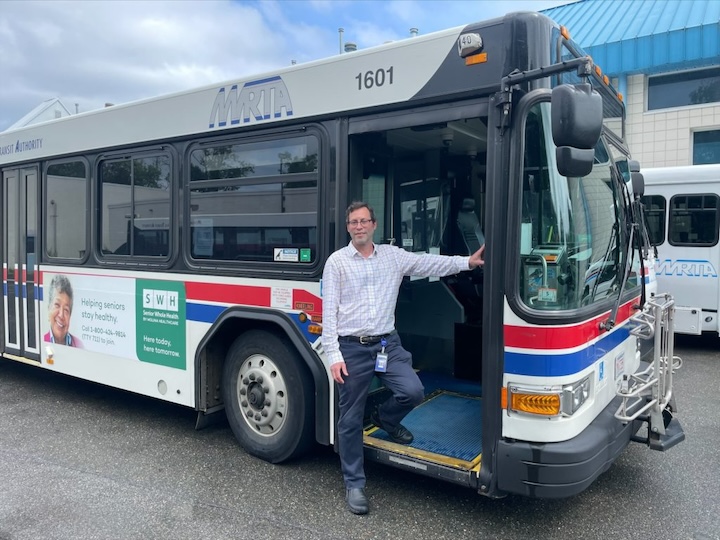
“There’s added pressure for the MBTA to get fare revenue, but no evidence that increasing enforcement will help to do that. The way to get more people to pay for transit is to make transit better. If the goal is to get more people on transit, and that is in conflict with collecting fares and making fares high, that means we need to be asking different questions.”
At the same time the T is pursuing enforcement, a transit agency north of Boston is asking similar questions. The Merrimack Valley Planning Commission is currently studying a program in which the Merrimack Valley Regional Transit Authority made its buses fare-free starting in March 2022. One thing is already clear, according to MEVA administrator Noah Berger—ridership has skyrocketed.
In the Merrimack Valley, Berger said that ridership is 50% higher—not just over the previous year, but over the last pre-pandemic year. In November 2023, 237,000 people rode MAVA buses, compared to 145,000 in November 2022 and 156,000 in November 2019. While he did not want to comment on potential MBTA policy, Berger said MEVA’s analysis of bus fares showed the agency was only making about 24 cents per dollar fare, before fares were eliminated.
“That’s a really inefficient and clunky way of getting revenue … the more we looked at it, the juice wasn’t worth the squeeze,” Berger said, adding that it also took about a year of fare-free rides to see ridership climb to its current levels. “Sometimes, with innovations in transit, you have to have a little bit of patience to see results, but once they came in the results were unassailable.”
The fare-free policy is being paid for with a $500,000 grant from the Boston-based Barr Foundation, and Berger said it is funded through 2024. An adjoining study was designed to examine how fare-free bus rides help local merchants and residents in ways beyond immediate transit, he said.
“This is what the study is looking at—how do you quantify externalities? Benefits to the local economy, people being able to live full lives—those are the kinds of things we’re hoping to document,” Berger said. “Everyone is invested in making [fare-free rides] permanent, we just have to do it right, we need to document everything to make it sustainable going forward.”
Tyndal said the T’s outlook was much less optimistic. He fears the cash-strapped agency is focused on fare collection at the expense of the people trying to ride public transit.
“We got stuck behind developing a business relationship with a private firm, and that’s not the best way to go about it,” Tyndal said. “I don’t see how this is going to work for communities.”

